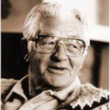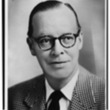The whistling season
Description
More Details
9781449896782
9780786288557
9780156035637
Excerpt
Similar Series From Novelist
Similar Titles From NoveList
Similar Authors From NoveList
Published Reviews
Booklist Review
Doig's latest foray through Montana history begins in the late 1950s, with Superintendent of Public Instruction Paul Milliron on the verge of announcing the closure of the state's one-room schools, seen as hopelessly out of date in the age of Sputnik. But quickly the narrative takes us back to Paul's pivotal seventh-grade year, 1910, when he was a student in one of those one-room schools, and two landmark events took place: the Milliron family acquired a housekeeper, and Halley's comet came to Montana. Throughout his long career, Doig has been at his best when chronicling the passing of a season in the lives of a Montana family, usually farmers at around the turn of the century. It's no surprise, then, that this is his best novel since the marvelous English Creek (1985). As in all of his books, he digs the details of his historical moments from the dirt in which they thrived. We see Paul, his father, and his two younger brothers struggling to make a life on their dryland farm in the wake of their mother's death, and we feel their shock when they lay eyes on their new housekeeper, a recent widow who looks nothing like the great-bosomed creature shrouded in gray they had come to expect. The saga of how this stranger from Minneapolis and her brother (soon to become the new teacher) change lives in unexpected ways has all the charm of old-school storytelling, from Dickens to Laura Ingalls Wilder. Doig's antique narrative voice, which sometimes jars, feels right at home here, coming from the mouth of the young Paul, who is eagerly learning Latin as he tries to make sense of his ever-enlarging world. An entrancing new chapter in the literature of the West. --Bill Ott Copyright 2005 Booklist
Publisher's Weekly Review
Any writer's work should be judged solely on its own merits, yet in this fine novel by Ivan Doig, one may be forgiven for marveling at the creation of such a work at an advanced stage of this writer's illustrious career. (Wallace Stegner-to whom, as with Doig, landscape was character and event in any story, and particularly Western landscapes-comes to mind with his classic Crossing to Safety.) Like many of Doig's earlier novels, The Whistling Season is set in the past in rural eastern Montana-and addresses that time and place in distinct, uncluttered prose that carries the full enthusiasm of affection and even love-for the landscape, the characters, and the events of the story-without being sentimental or elegiac. The novel is narrated by an aging Montana state superintendent of schools, Paul Milliron, who is charged with deciding the fate of the state's last scattered rural schools, and who, in the hours preceding his meeting to determine those schools' fate, recalls the autumn of 1909, when he was 13 and attending his own one-room school in Marias Coulee. Recently widowed, Paul's father, overwhelmed by the child-rearing duties presented by his three sons, in addition to his challenging farming duties, hires a housekeeper, sight unseen, from a newspaper ad. The housekeeper, Rose, proclaims that she "can't cook but doesn't bite." She turns out to be a beguiling character, and she brings with her a surprise guest-her brother, the scholarly Morris, who, though one of the most bookish characters in recent times, also carries brass knuckles and-not to give away too much plot-somehow knows how to use them. The schoolteacher in Marias Coulee runs away to get married, leaving Morris to step up and take over her job. The verve and inspiration that he, an utter novice to the West, to children and to teaching children, brings to the task is told brilliantly and passionately, and is the core of the book's narrative, with its themes of all the different ways of knowing and learning, at any age. Doig's strengths in this novel are character and language-the latter manifesting itself at a level of old-fashioned high-octane grandeur not seen previously in Doig's novels, and few others': the sheer joy of word choices, phrases, sentences, situations, and character bubbling up and out, as fecund and nurturing as the dryland farmscape the story inhabits is sere and arid. The Whistling Season is a book to pass on to your favorite readers: a story of lives of active choice, lived actively. (June) (c) Copyright PWxyz, LLC. All rights reserved
Library Journal Review
Doig, a native of Montana, has been celebrating the natural beauty of his state and depicting the pleasures and challenges of frontier life for many years now in books like This House of Sky and English Creek. Here he returns to Montana to deal with these signature themes once again, with very satisfying results. Set in the early 1900s, this novel is a nostalgic, bittersweet story about a widower, his three sons, and the year these boys spend in a one-room country schoolhouse. The novel begins with the father, Oliver, hiring a widowed housekeeper named Rose from Minneapolis (her advertisement reads "Can't Cook but Doesn't Bite"). She arrives with her unconventional brother, Morrie, in tow. Morrie is something of a scholar, and he soon finds himself pressed into service as a replacement teacher. During the course of the novel, these intriguing and unpredictable characters come together in surprising and uplifting ways. This is an affectionate, heartwarming tale that also celebrates a vanished way of life and laments its passing. Recommended for all libraries.-Patrick Sullivan, Manchester Community Coll., CT (c) Copyright 2010. Library Journals LLC, a wholly owned subsidiary of Media Source, Inc. No redistribution permitted.
Kirkus Book Review
Scenes from an early-20th-century Montana childhood, from this veteran Western author (Prairie Nocturne, 2003, etc.). Lured by the government promise of free land for homesteaders, Oliver Milliron forsook his Wisconsin drayage business and brought his family to Montana. Now it's 1909, and Oliver has been able to make ends meet as a dryland farmer, weathering the death of his wife from a burst appendix. He is struggling to raise his three boys single-handedly (13-year-old Paul, the narrator, and kid brothers Damon and Toby) when he spots an ad for a housekeeper. Rose Llewellyn doesn't come cheap; she wants her fare paid from Minneapolis, plus three months wages in advance. Oliver submits, not expecting that pretty, petite Rose will have her brother Morrie in tow. Conveniently, the teacher from the one-room schoolhouse absconds, and dapper, erudite Morrie steps into the breach. Doig's story centers on the impact of these unconventional siblings on simple rural lives. While Rose gets the farmhouse shipshape, Morrie proves a surprisingly successful novice teacher. Overall, it's a sunny tale. The boys ride horseback to school. A dispute between Paul and an older bully is settled with a race, riders facing backwards. The novel is also an elegy for the "central power" of the country school as a much older Paul, in 1957 the state superintendent of schools, is charged, to his dismay, with their abolition. In 1910, the school passes its inspection with flying colors, as Halley's comet streaks across the sky and the schoolkids greet it with harmonicas. Paul hasn't developed an interest in girls yet, but he will have a man-size decision to make. Oliver has fallen for Rose and they are set to marry when Paul discovers that Rose and Morrie are on the run from a scandal. Should he tell his dad? The melodrama is a weak ending for a novel that had so far avoided it. Minor work, carried along by homespun charm. Copyright ©Kirkus Reviews, used with permission.
Booklist Reviews
/*Starred Review*/ Doig's latest foray through Montana history begins in the late 1950s, with Superintendent of Public Instruction Paul Milliron on the verge of announcing the closure of the state's one-room schools, seen as hopelessly out of date in the age of Sputnik. But quickly the narrative takes us back to Paul's pivotal seventh-grade year, 1910, when he was a student in one of those one-room schools, and two landmark events took place: the Milliron family acquired a housekeeper, and Halley's comet came to Montana. Throughout his long career, Doig has been at his best when chronicling the passing of a season in the lives of a Montana family, usually farmers at around the turn of the century. It's no surprise, then, that this is his best novel since the marvelous English Creek (1985). As in all of his books, he digs the details of his historical moments from the dirt in which they thrived. We see Paul, his father, and his two younger brothers struggling to make a life on their dryland farm in the wake of their mother's death, and we feel their shock when they lay eyes on their new housekeeper, a recent widow who looks nothing like the "great-bosomed creature shrouded in gray" they had come to expect. The saga of how this stranger from Minneapolis and her brother (soon to become the new teacher) change lives in unexpected ways has all the charm of old-school storytelling, from Dickens to Laura Ingalls Wilder. Doig's antique narrative voice, which sometimes jars, feels right at home here, coming from the mouth of the young Paul, who is eagerly learning Latin as he tries to make sense of his ever-enlarging world. An entrancing new chapter in the literature of the West. ((Reviewed December 15, 2005)) Copyright 2005 Booklist Reviews.
Library Journal Reviews
Doig, a native of Montana, has been celebrating the natural beauty of his state and depicting the pleasures and challenges of frontier life for many years now in books like This House of Sky and English Creek. Here he returns to Montana to deal with these signature themes once again, with very satisfying results. Set in the early 1900s, this novel is a nostalgic, bittersweet story about a widower, his three sons, and the year these boys spend in a one-room country schoolhouse. The novel begins with the father, Oliver, hiring a widowed housekeeper named Rose from Minneapolis (her advertisement reads "Can't Cook but Doesn't Bite"). She arrives with her unconventional brother, Morrie, in tow. Morrie is something of a scholar, and he soon finds himself pressed into service as a replacement teacher. During the course of the novel, these intriguing and unpredictable characters come together in surprising and uplifting ways. This is an affectionate, heartwarming tale that also celebrates a vanished way of life and laments its passing. Recommended for all libraries.--Patrick Sullivan, Manchester Community Coll., CT
[Page 70]. Copyright 2006 Reed Business Information.Publishers Weekly Reviews
[Signature]
Reviewed by Rick Bass.
Any writer's work should be judged solely on its own merits, yet in this fine novel by Ivan Doig, one may be forgiven for marveling at the creation of such a work at an advanced stage of this writer's illustrious career. (Wallace Stegner--to whom, as with Doig, landscape was character and event in any story, and particularly Western landscapes--comes to mind with his classic Crossing to Safety .)
Like many of Doig's earlier novels, The Whistling Season is set in the past in rural eastern Montana--and addresses that time and place in distinct, uncluttered prose that carries the full enthusiasm of affection and even love--for the landscape, the characters, and the events of the story--without being sentimental or elegiac. The novel is narrated by an aging Montana state superintendent of schools, Paul Milliron, who is charged with deciding the fate of the state's last scattered rural schools, and who, in the hours preceding his meeting to determine those schools' fate, recalls the autumn of 1909, when he was 13 and attending his own one-room school in Marias Coulee.
Recently widowed, Paul's father, overwhelmed by the child-rearing duties presented by his three sons, in addition to his challenging farming duties, hires a housekeeper, sight unseen, from a newspaper ad. The housekeeper, Rose, proclaims that she "can't cook but doesn't bite." She turns out to be a beguiling character, and she brings with her a surprise guest--her brother, the scholarly Morris, who, though one of the most bookish characters in recent times, also carries brass knuckles and--not to give away too much plot--somehow knows how to use them.
The schoolteacher in Marias Coulee runs away to get married, leaving Morris to step up and take over her job. The verve and inspiration that he, an utter novice to the West, to children and to teaching children, brings to the task is told brilliantly and passionately, and is the core of the book's narrative, with its themes of all the different ways of knowing and learning, at any age.
Doig's strengths in this novel are character and language--the latter manifesting itself at a level of old-fashioned high-octane grandeur not seen previously in Doig's novels, and few others': the sheer joy of word choices, phrases, sentences, situations, and character bubbling up and out, as fecund and nurturing as the dryland farmscape the story inhabits is sere and arid. The Whistling Season is a book to pass on to your favorite readers: a story of lives of active choice, lived actively. (June)
Rick Bass is the Pushcart and O. Henry award-winning author of more than 20 fiction and nonfiction books. His second novel, The Diezmo, will be published in June.
[Page 33]. Copyright 2006 Reed Business Information.





































